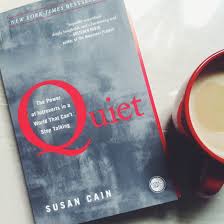Description
Article Title: Is Temperament Destiny? Nature, Nurture, and Orchid Hypothesis
Author: Cain, Susan
Date: January 24, 2012
The objective or purpose of this piece is to discuss to find answers to questions many people particularly developmental scientists have been studying to find answers to. This chapter intends to find out what makes human beings the way they are. The questions are what factors contribute to our temperament? And does that have connections with our natural environment, nurturing environment which may have an impact on our learning experiences and abilities. Psychologists research and study the differences between “temperament and “personality” (Cain, 2012, p.163). The author discusses if a person’s personality is influenced by their genetic traits.
Summary
The key ideas that help the author to achieve her objective are the thorough research study done by a Developmental Psychologist, Kagan, and his team. The objective is to determine if human childhood influences who they are. A longitudinal study was carried out by Kagan on young children (infants and adolescents) (Cain, 2012, p.162). Professor Kagan outlined detailed descriptions, predictions with supporting rationales from his experiment carried out on the infants and concluded his Harvard Laboratory for Child Development (Cain, 2012 p.161). The author aims to understand the concept of introverts and extroverts, as well as how it is correlated to nature versus nurture. The outcome of Kagan’s experimental study of cognitive and emotional development was dependent on a lot of factors. Based on the findings, the author finds answers to some controversial questions. The author advises that “All kids notice their environments and feel emotions, of course but high-reactive kids seem to see and feel things more.” (Cain, 2012, p.165). This remark comes after Kagan’s results indicating that high reactive children are introverted while low reactive children are considered to be extroverted (Cain, 2012).
Professional Examination
“How do we become who we are?” According to Professor Kagan, “To ask whether it’s nature or nurture is like asking whether a blizzard is caused by temperature or humidity. It is the intricate interaction between the two that makes us who we are.” (Cain, 2012, p.171).
This reading is important because it explains in-depth how the concept of nature versus nurture plays a major role in human development. A person’s life experiences determine who they are. The author mentions that our personal life experiences reinforce our characteristics from the inheritance of certain traits according to the “Theory of gene-environment” (Cain, 2012). So, in the course of our lives, our nature (genetic makeup) influences who we are, as well as nurture (genetic traits) like it was proven by the psychologist Kagan, our temperament forms a critical component in early childhood based on our environment.
Furthermore, this reading discusses the Orchid Hypothesis, and the theory compares children to dandelions as they can survive in any environment whether positive or negative while other children are like orchid, they wither unless the environment is favorable. This explains that every child is different and how they would turn out later in their adulthood is dependent on their conditions.
In conclusion, I would like to share my personal experience with this reflection. Growing up I lived in a small hometown with my aunt and three cousins between infancy till I turned seven. I vividly remember being the high reactive extrovert whereas my cousins seemed to be the opposite all though we all lived together. I was the youngest and people used to say I would be a great person in the future because I was “loud and adventurous.” At age eight I moved to live with my uncle and his wife in a big city. My new environment was completely different. By adolescent age I realized I had become more of an introvert: very shy, soft-spoken, reserved, and always in my shell. I barely spoke. The new environment had changed me, my lifestyle too. And I also recall visiting my hometown and one of my cousins expressed her concern about my change in personality or should I say temperament. Reflecting on the author’s questions “to what degree is temperament destiny?” (Cain, 2012, p.171) and also her nature-nurture question I would like to add that yes indeed our social and cultural environment has some impact on our inborn traits. Sometimes I ask myself and wonder what my adulthood would have been like if I was raised in my hometown only. Would I have been outgoing and outspoken? Or would I have become quiet and shy somewhere along in life?
References
Cain, S. (2012). “Is Temperament Destiny” in Quiet: The Power of introverts in a World that Can’t Stop Talking. New York: Crown Publishers, 2012.
Sheridan College. (2021). PSYCH 34579 HUMAN DEVELOPMENT: CURRENT TOPICS.


